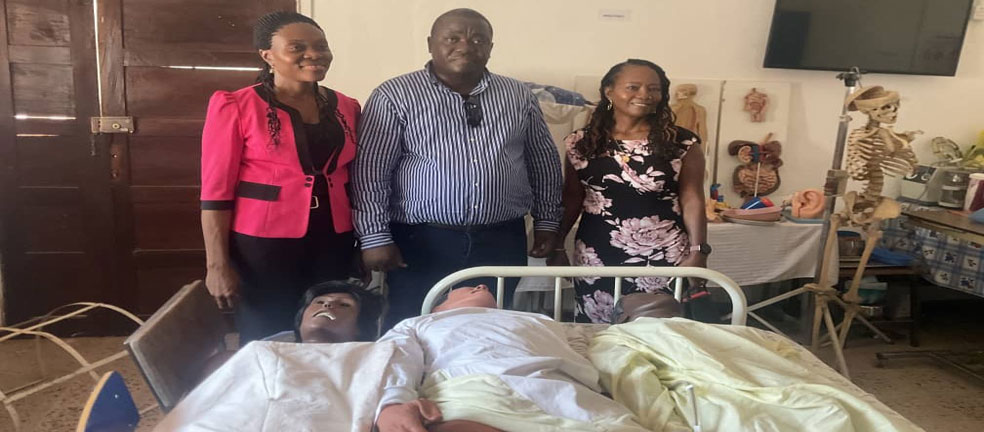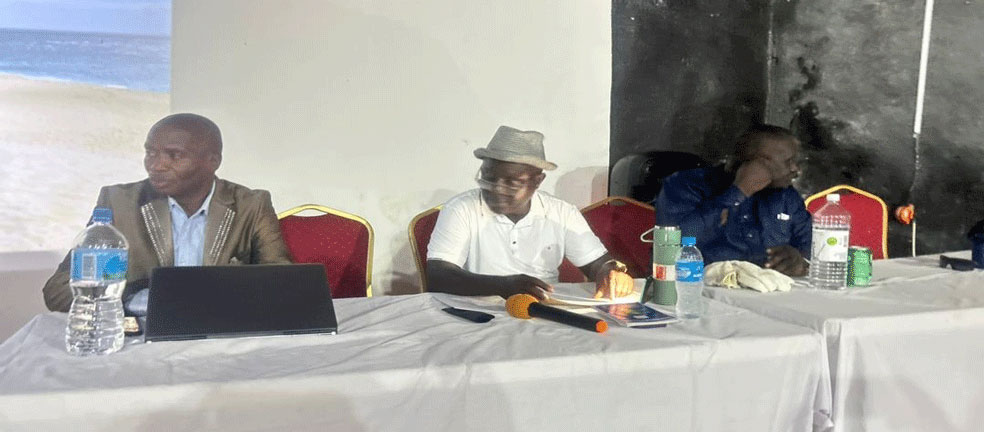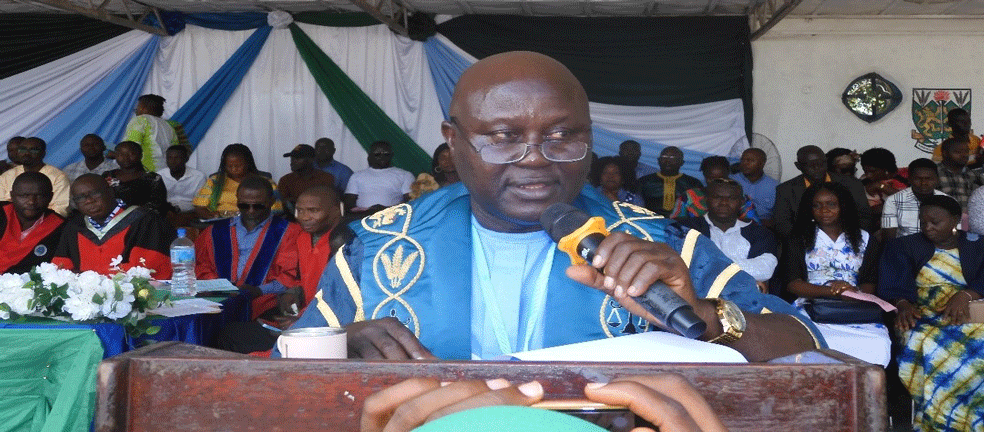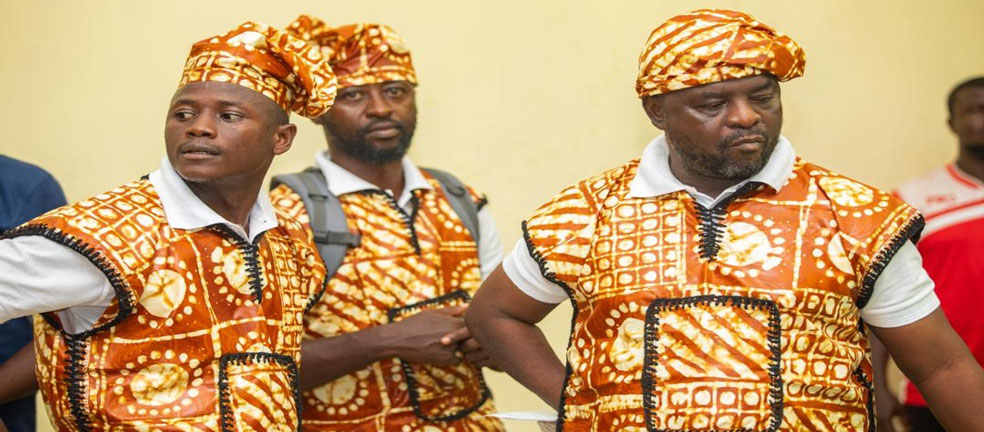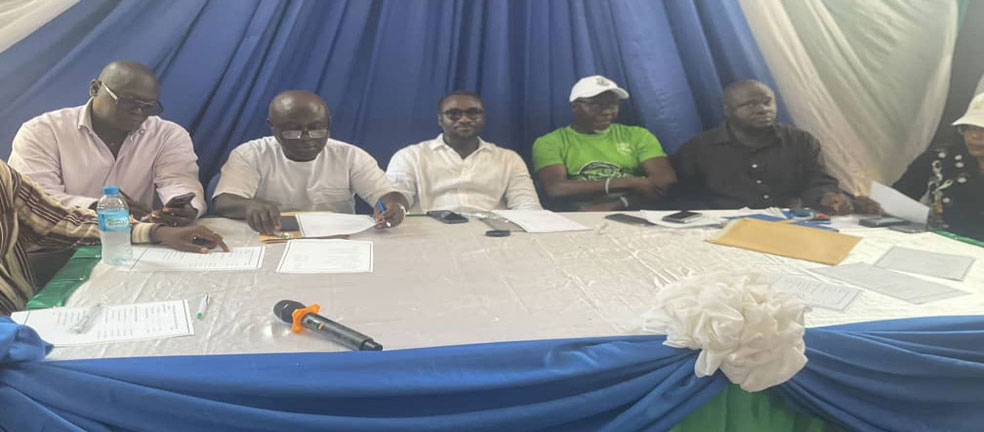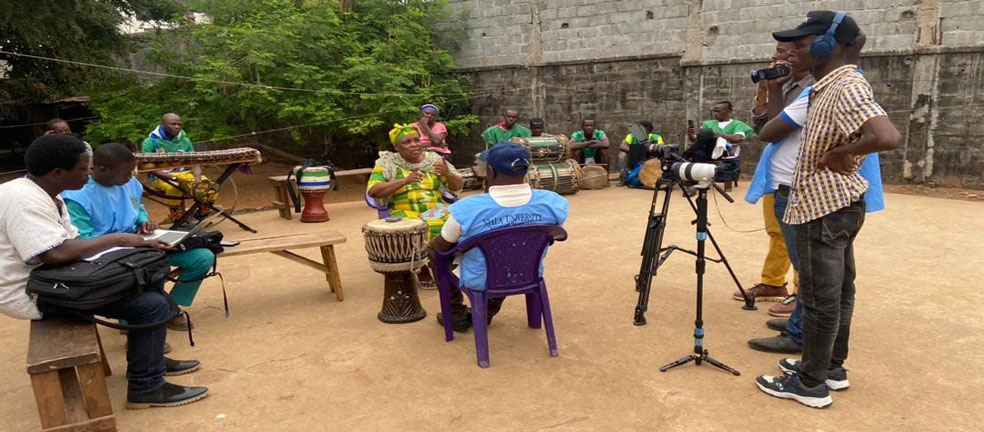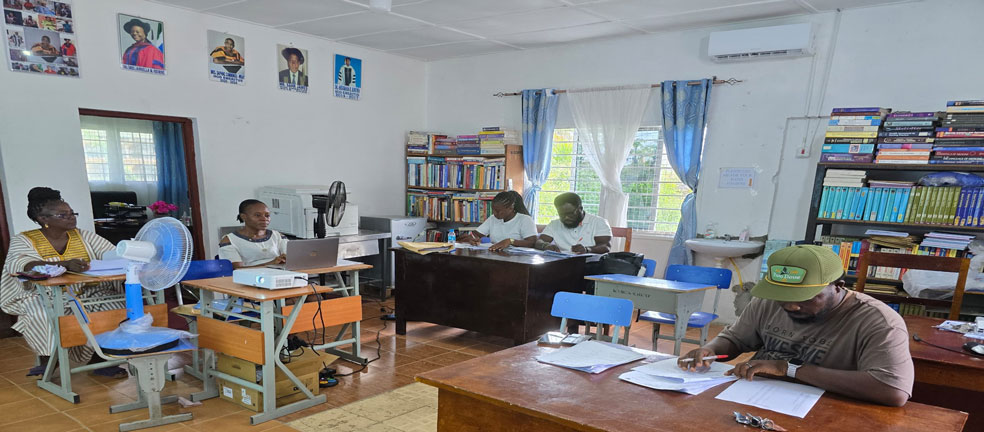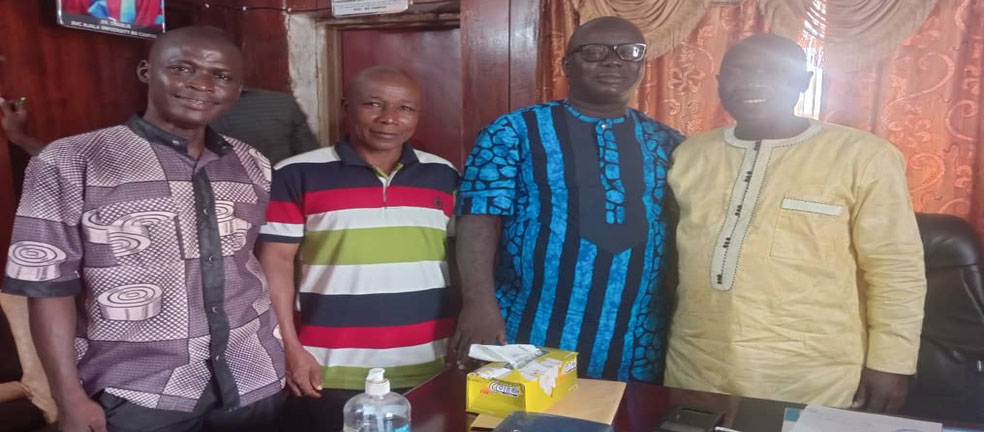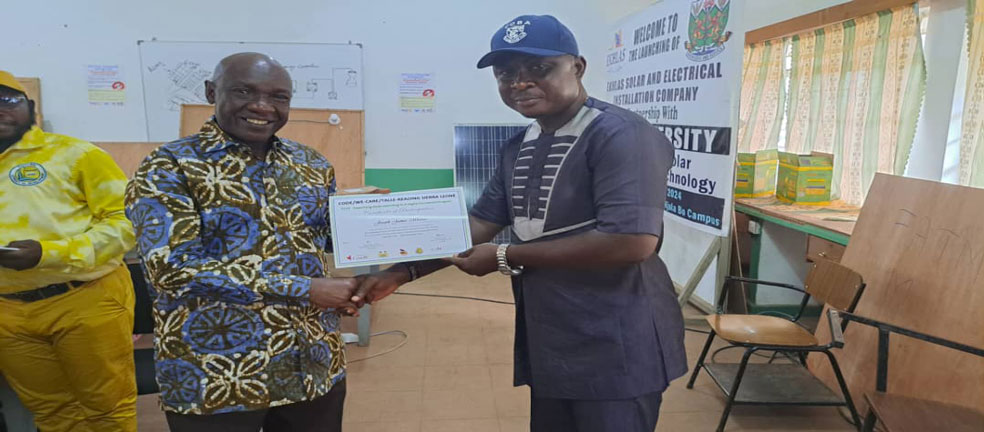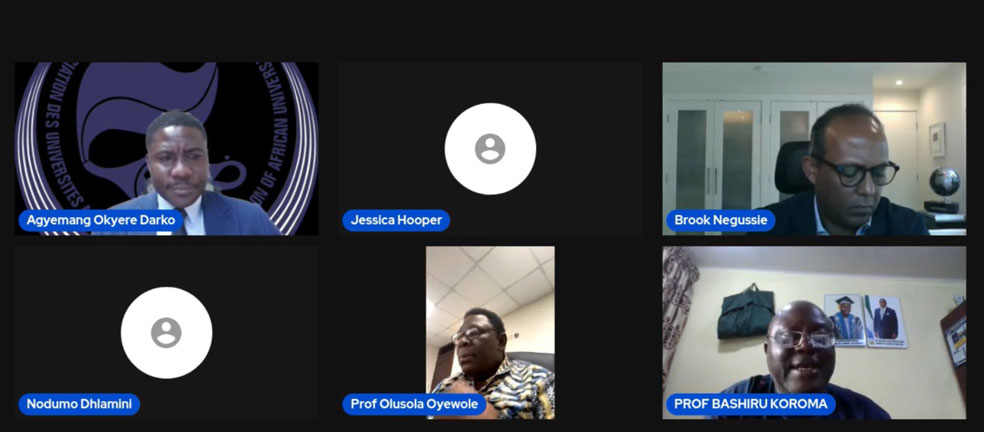SPHEIR/AQHEd SL Trains Lecturers on Critical Thinking Skills Deliverya
By: Alhaji Umaru Gbow
Njala University, Bo Campus -11th June 2021- The Assuring Quality in Higher Education in Sierra Leone (AQHEd-SL) project under the Strategic Partnerships for Higher Education Innovation and Reform (SPHEIR) programme has on 8th and 9th June 2021 conducted a two-day Critical Thinking Skills (CTS) training workshop for lecturers of Njala University at the Career Advisory and Placement Services Centre (CAPS), Bo Campus, Towama location.
The two days training workshop brought together 36 participants (lecturers) who represented various Schools and Departments from both Njala and Bo Campuses of the University.
Deputy Vice-Chancellor, Bo Campus, Professor Mohamed Syed Fofanah welcomed participants to the workshop and expressed his desire for all staff to participate and benefits from the deliverables of the workshop.
Director INSLACS, Dr. Phillip F.Y. Thulla while giving an overview of the previous training, suggested that certificates be awarded to participants at the end of the session which according to him will motivate and enhance their corporation.
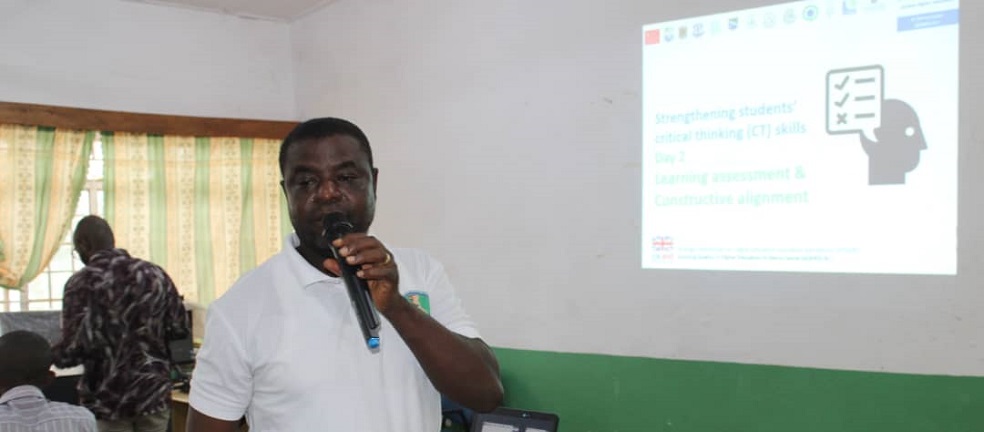
Ms. Georgiana Allie who doubles as the Lead-facilitator and the Critical Thinking Task Force Officer for SPHEIR/AQHEd SL revealed that the AQHEd-SL project is bringing together seven higher educational institutions across Sierra Leone with the rationale to improve quality management in higher education and also support the introduction and implementation of outcome-based education.
She continued that the projects also aimed at bringing about a student-centered focus within learning in higher education leading to a more responsive and capable national workforce.
The partnership, according to Ms. Allie involves the University of Sierra Leone, Njala University, the University of Makeni, Tertiary Education Commission, Sierra Leone Institution of Engineers, King’s College London (UK), the 50/50 Group, INASP (UK), the University of Illinois (US), Freetown Teachers College, Ernest Bai Koroma University of Science and Technology, Eastern Polytechnic, and the Milton Margai College of Education and Technology.
The vision she noted is to develop a culture of quality in higher education amidst the many challenges confronting Sierra Leone’s Higher Educational system such as poor financing, limited staff training opportunities, and lack of effective quality management systems.
These challenges, she recounted had largely incapacitated instructors to align course contents with the aspirations of students and the needs of the job market.
The AQHEd-SL project is funded by the UK’s Foreign, Commonwealth & Development Office (FCDO) as part of its SPHEIR programme to support higher education transformation in selected countries in Sub-Saharan Africa, Asia, and the Middle East.
Explaining the successes of the project, Mr. Monya Konneh Jr., Project Officer, AQHED-SL Njala University Agriculture Cluster, averred that 123 modules have been revised across four undergraduate degree programmes in Science Technology Engineering and Math (STEM), Health, Management, and Agriculture.

He added that the programme content and pedagogical approaches of these modules are now aligned with employer needs, adding that 27 Agriculture General course programmes have been reviewed so far using SPHEIR templates and with inputs from Stakeholders from the Private and Public Agric-based Institutions in Sierra Leone.
The Project Officer also hinted that the project has offered capacity-building training to academic and administrative staff to ensure quality management and service delivery in Njala University.
The two days of critical thinking skills delivery training covered areas on lecture planning that strengthen students’ critical thinking skills, identifying and expressing learning outcomes, planning teaching and learning activities, critical learning assessment, and constructive alignment of learning outcomes, assessment and teaching, and learning activities.
Delivering on the mode of a critical thinking assessment, Dr. Tamba Kebbie, Curriculum Package Lead, Critical Thinking Task Force Officer and Director, Centre for Pedagogical Excellence, Njala University explained the reasons, importance, and criteria for a critical learning assessment.
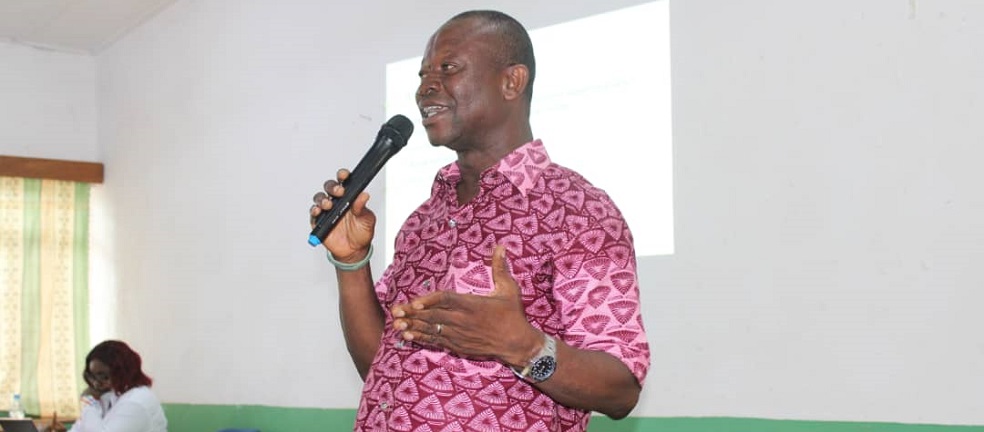
Deputy Registrar, Bo Campus, Mr.Anthony Habib Kamara while closing the session extended his thanks and appreciation to the facilitators and the project management for providing such training for staff of Njala University and encouraged lecturers to implement the knowledge gained into their teaching and research activities.
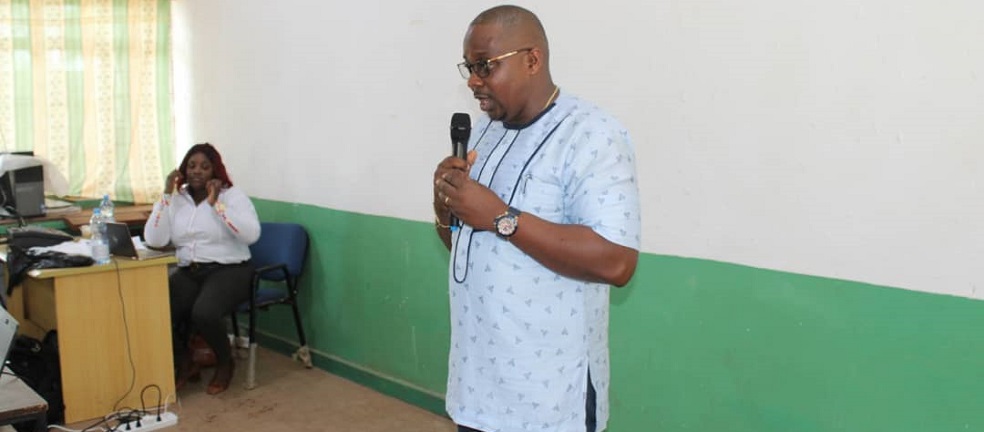
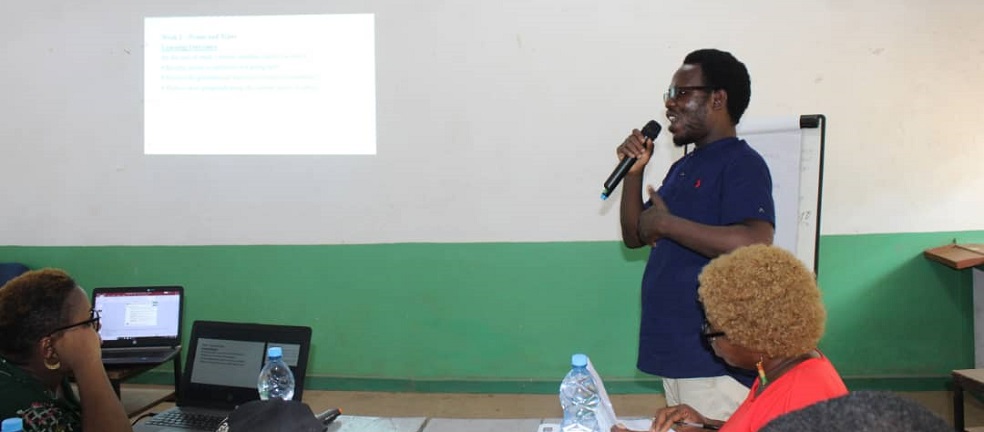
For more enquiries, contact the Public Relations Office, Njala University on +23276336213/+23276245292/Email:[email protected] /[email protected]
- Log in to post comments


